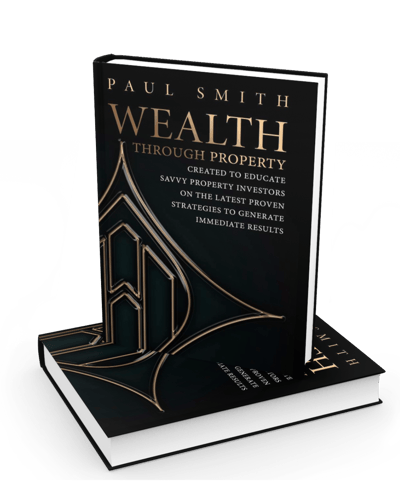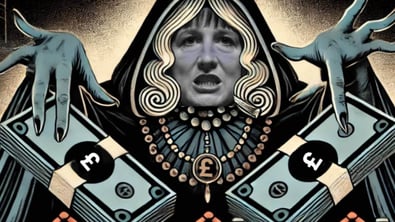Do you invest in UK property? Brace yourself – interest rates have just been hiked for the 13th consecutive time since 2021. This is the highest they've been in 15 years, jumping 0.5 percentage points and taking the base rate to 5%. You may be wondering: can property investors still flourish in this new landscape? Don't panic just yet – there is still a good chance you can make a profit. Keep reading to find out how.
Why have UK interest rates been increased?
The Consumer Price Index (CPI) reports that inflation in the UK has stubbornly remained at a high of 8.7%, exceeding the Bank of England's inflation target by 6.7%. Inflation on everyday food items, such as bread and cereal, has come down slightly but still remains high at a whopping 18.3%. Despite an interest rate increase of 0.25% in May, inflation did not decrease. As a result, UK interest rates have been raised again more drastically in an attempt to bring inflation down.
High-interest rates aim to encourage people to save their money, as they receive a better return for their savings. This can ultimately have an effect on the price of goods people may prioritise saving their money over spending it, leading to lower prices for goods and services.
However, considering that essential goods and services such as food and energy are some of the hardest hit by inflation, whether this strategy will be the method to “strangle inflation” that it is intended to be remains to be seen.
How will property investors be affected by UK interest rate rises?
If you're currently locked into a competitive fixed-rate deal for the next few years, you likely won't feel the effects of interest rate changes for a while, if at all.
This is also a great market for cash buyers, who will benefit from greater choice and room for negotiation.
Property investors coming to the end of low fixed-rate mortgages or seeking a new mortgage are going to feel the greatest impact from mortgage rate rises and it is imperative that you crunch your numbers to ensure that you can account for increased costs.
However, despite recent base rate changes, some experts predict that new mortgage products won't see a significant rise in interest rates. This is because lenders have already factored in the expected increases into their product offerings. Rest assured that you can still find competitive rates for your mortgage needs.
How do UK interest rates compare to historic levels?
It’s important to contextualise the furore surrounding interest rate rises. Interest rates remain low compared to historic levels, with the average since 1971 being 7.11%.
As you can see from the chart above, interest rates are still historically low.
Profitable property empires have been built on double-digit interest mortgages; two such examples are Touchstone Education founders Aniko and Paul Smith, who both began investing when mortgage interest rates ran rampant in the 1980s.
Aniko’s first property mortgage interest rate of 18%, yet it made her £200,000 profit.
Paul Smith’s first mortgage was 15% and he still used the proceeds to expand his portfolio.
Here is what Paul Smith had to say about the rise to 5%:
“Interest rate rises are coming to an end. The Bank of England monetary policy committee has played its last card and hopes the shock 0.5% increase will reduce inflation. What comes next will be very interesting.
Property Rental inflation is running at over 10% again and property remains ‘as safe as house’..
Inflation which is destroying people’s cash savings remains well over 8% and interest rates can not go much higher now. Expect the next rate moves to be down when they come.”
Will UK interest rates go higher?
The financial market consensus is that interest rates are expected to peak to 6% by the end of the year and remain there until mid-2024.
You may be wondering why the Bank of England don’t raise interest rates to match inflation, thus bringing it down more rapidly.
The answer is simple: it would bankrupt the government.
Why are debt repayments increasing so fast?
The answer is threefold:
Firstly, the government is borrowing more and more therefore the interest goes up as more money is owed.
Secondly, some of the debt is linked to inflation which impacts “gilts” (ie government borrowing) costs. Higher inflation means higher interest on the debt.
Thirdly, and this is the decider that limits interest rate increases - a proportion of government debt is linked to the base rate (If you would like to learn more about this consider visiting the ONS website).
When will UK interest rates go down?
Interest rates are forecast to start falling from mid-2024. In its most recent World Economic Outlook, the IMF (International Monetary Fund) described current high-interest rates as “temporary” and likely to go down “when inflation is brought back under control”. Though they predict that the UK will not reach its 2% inflation target by mid-2025, it is logical that as inflation slows, interest rates will be reduced as a consequence. Meanwhile, the Office of Budget Responsibility is predicting a much sharper reduction to inflation, expecting it to “fall sharply to 2.9 per cent by the end of 2023”, which would see interest rates brought down much sooner.
How can I maximise my property profits?
From teaching you how to find the best below market value deals to helping you choose strategies with the best NET yields, Touchstone Education provides everything you need to know to build your property wealth, whatever the economic outlook.
Ready to build your property wealth? Book your date for Wealth Through Property, the UK’s leading 2-day property investment course to build your specialist knowledge of proven investor strategies.
Or get started immediately by downloading our complimentary Wealth Through Property E-book.
To find out more information about the property investment courses we offer call us on 01302 897131 or email office@touchstoneeducation.li.










